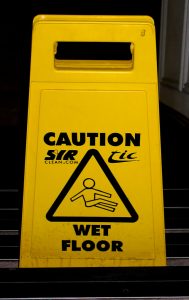According to rehabilitation charities, there are around 11 million people in the UK with a criminal record. The words “criminal record” might make you think of hardened criminals with a record as long as your arm but that’s often not the case. Any information held on the Police computer about you is your “criminal record”. Understanding convictions is relatively simple. Cautions however are a different matter. There’s lots of confusion about what cautions are, in in which circumstances they might appear on your DBS certificate.
What is a Police Caution?
 A caution is a way of dealing with a minor matter without having to involve the courts. Antone over the age of 10 can get a caution. There is a long list of offences which could result in a caution and these are usually things like vandalism, or getting into minor fight when drunk. Once you’re in the police station, the police decide whether to let you go, charge you to appear in court, or caution you. Accepting a caution is admitting that you’re guilty of the offence. After the Police give you the caution, you’re free to go. Penalty notices are a similar legal device which are used for things like possession of cannabis. In most cases, accepting a caution has no consequences. One of the only situations in which it could come back to haunt you is applying for a DBS certificate.
A caution is a way of dealing with a minor matter without having to involve the courts. Antone over the age of 10 can get a caution. There is a long list of offences which could result in a caution and these are usually things like vandalism, or getting into minor fight when drunk. Once you’re in the police station, the police decide whether to let you go, charge you to appear in court, or caution you. Accepting a caution is admitting that you’re guilty of the offence. After the Police give you the caution, you’re free to go. Penalty notices are a similar legal device which are used for things like possession of cannabis. In most cases, accepting a caution has no consequences. One of the only situations in which it could come back to haunt you is applying for a DBS certificate.
Rehabilitation of Offenders Act
The UK justice system recognises that everyone deserves a fresh start. Lots of people get a couple of minor cautions as teenagers and never get into trouble again. The Rehabilitation of Offenders Act allows some crimes and cautions to be considered forgotten, or “spent”, after a certain period of time.
DBS Certificates and Filtering
When it comes to DBS checks, the situation gets even more complicated. If you apply for an enhanced DBS check, then the basic rule is that everything is disclosed. Even those cautions which you racked up decades ago. This puts employers in a difficult position when it comes to deciding who to recruit. There are also privacy issues around people knowing your past misdemeanours. The DBS now uses a concept called “filtering”. This means that before the DBS prints your DBS certificate, the police will literally filter out any cautions which they feel are irrelevant. Usually, a caution which happened more than six years ago will be filtered out. That’s not the same as deleting the caution off the police computer. It just means that it won’t appear on your DBS information. The only way of removing a caution or conviction from your police record is to prove that the police didn’t follow procedure or acted illegally.
Dealing with the issue of cautions
If you know that you have cautions on your record, then it’s best to be open about this. Employers are human, and understand that people make mistakes. The key is showing that you have kept out of trouble since and that you’re a great fit for the job.